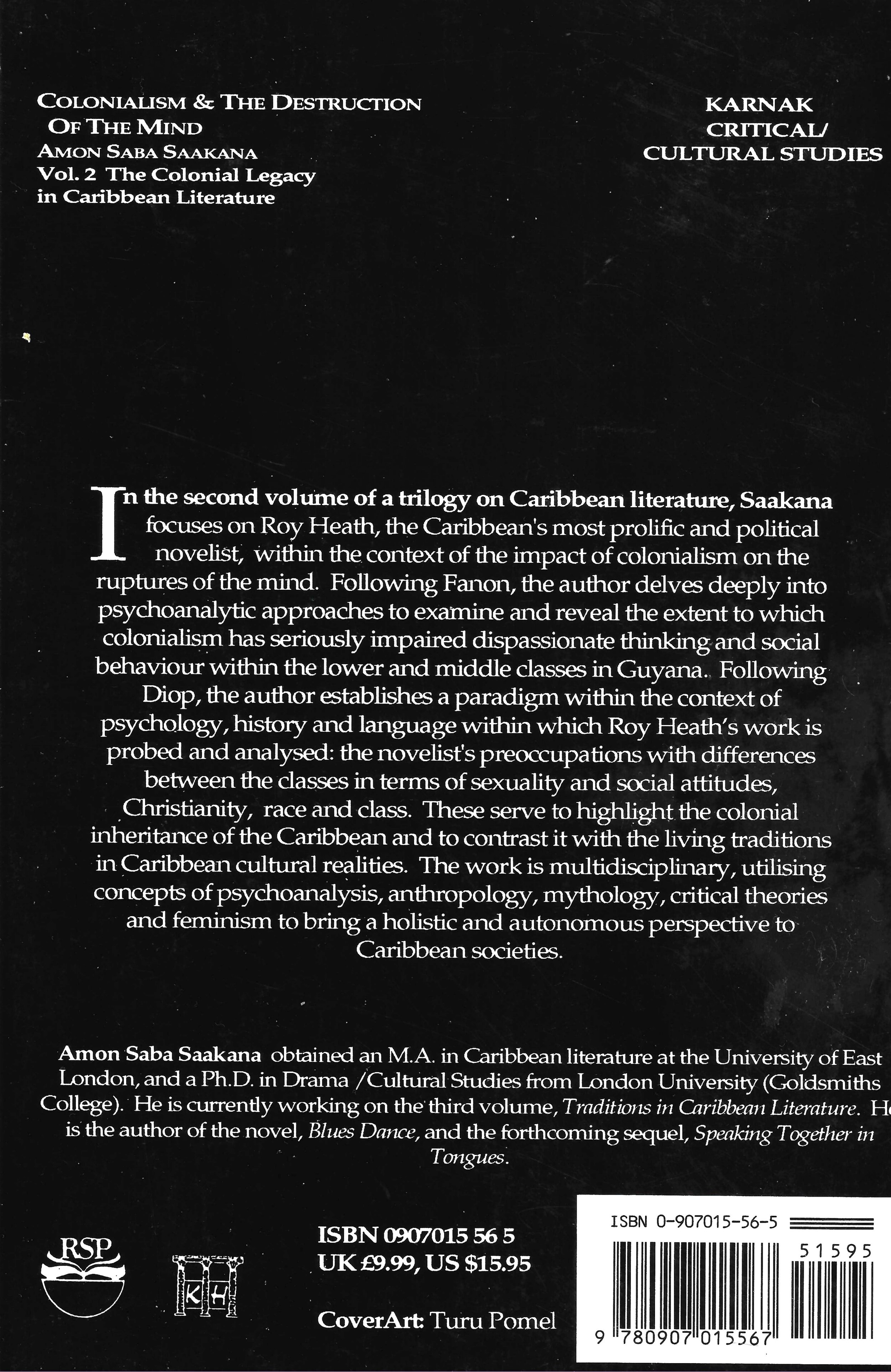 Image 1 of 2
Image 1 of 2

 Image 2 of 2
Image 2 of 2



COLONIALISM AND THE DESTRUCTION OF THE MIND By Amon Saba Saakana
In the second volume of a trilogy on Caribbean literature, Saakana focuses on Roy Heath, the Caribbean’s Most Prolific and political novelist, within the context of the impact of colonialism on the ruptures of the mind.
Following Fanon, the author delves deeply into psychoanalytic approaches to examine and reveal the extent to which colonialism has seriously impained dispassionate thinking and social behaviour within the lower and middle classes in Guyana. Following Diop, the author establishes a paradigm within the context of psychology, history and language within which Roy Heath's work is probed and analysed: the novelist's preoccupations with differences between the classes in terms of sexuality and social attitudes, Christianity, race and class. These serve to highlight the colonial inheritance of the Caribbean and to contrast it with the living traditions in Caribbean cultural realities. The work is multidisciplinary, utilising concepts of psychoanalysis, anthropology, mythology, critical theories and feminism to bring a holistic and autonomous perspective to Caribbean societies.
In the second volume of a trilogy on Caribbean literature, Saakana focuses on Roy Heath, the Caribbean’s Most Prolific and political novelist, within the context of the impact of colonialism on the ruptures of the mind.
Following Fanon, the author delves deeply into psychoanalytic approaches to examine and reveal the extent to which colonialism has seriously impained dispassionate thinking and social behaviour within the lower and middle classes in Guyana. Following Diop, the author establishes a paradigm within the context of psychology, history and language within which Roy Heath's work is probed and analysed: the novelist's preoccupations with differences between the classes in terms of sexuality and social attitudes, Christianity, race and class. These serve to highlight the colonial inheritance of the Caribbean and to contrast it with the living traditions in Caribbean cultural realities. The work is multidisciplinary, utilising concepts of psychoanalysis, anthropology, mythology, critical theories and feminism to bring a holistic and autonomous perspective to Caribbean societies.
